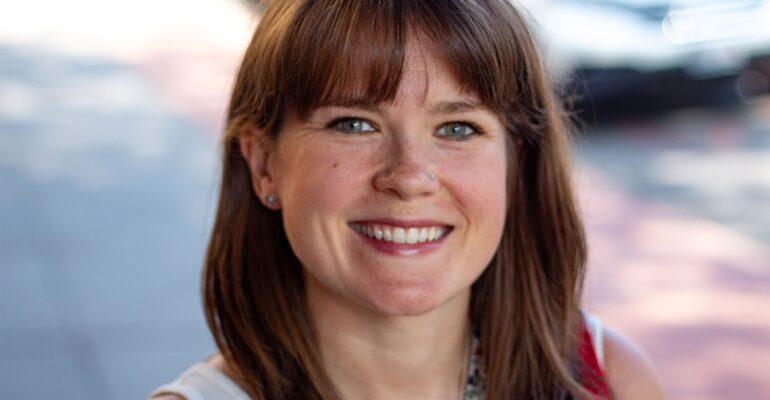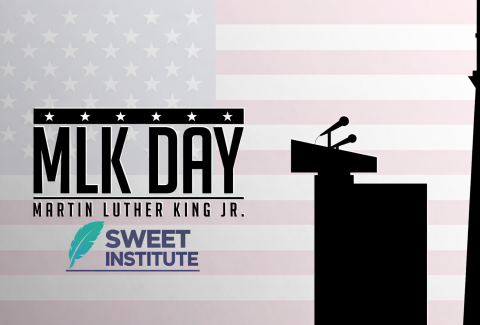Kathy Pierson, LCSW: A Journey of Service, Leadership, and Transformation
Kathy Pierson’s career in social work is a testament to the power of compassion, resilience, and dedication. A licensed clinical social worker, Kathy has devoted her life to serving individuals and communities often overlooked by traditional systems. Her work has spanned clinical practice, program management, and strategic leadership, demonstrating her unwavering commitment to improving access to care and fostering meaningful change.
Early Beginnings: From Intern to Clinician
Kathy’s journey into social work began at Bridging Access to Care, an Article 31 mental health clinic in Williamsburg, Brooklyn. Initially starting as an intern, she transitioned into a fee-for-service role before being hired full-time after earning her license. In this role, Kathy worked with adults aged 18 and older who were living with Axis I mental health diagnoses, including depression and schizoaffective disorder.
“I had a caseload of around 60 clients,” she recalls. “For many of them, I wasn’t just a therapist—I was a lifeline. Our clinic felt like home, a grounding place where people could feel truly seen and cared for.”
Integrating Behavioral and Physical Health
After accruing her clinical hours, Kathy took on the role of program manager for a SAMHSA grant focused on integrating behavioral health and primary care. The program tested clients for HIV and hepatitis C while co-locating medical care within the mental health clinic.
“One of our biggest successes was bridging the gap between primary care and psychiatry. Having a primary care doctor actively collaborate with a psychiatrist in real time felt revolutionary and often proved to be the key to our clients’ success,” she explains.
Kathy’s leadership extended beyond direct service as she coordinated with Brooklyn Hospital, ensuring a seamless handoff for clients who tested positive. Her efforts not only improved health outcomes but also created a model of holistic, person-centered care.
Expanding Impact in Criminal Justice
Kathy’s current role at the Criminal Justice Agency (CJA) further exemplifies her commitment to marginalized populations. As part of the Queens Supervised Release Program, Kathy leads a team providing supportive counseling and case management for individuals released in lieu of bail.
“Some clients want a lot of support, while others want just the basics—like reminders about court dates. We meet them where they are,” she says. “We focus on creating a trauma-informed, person-centered experience in a system that often makes people feel invisible.”
Bail reform has presented one of Kathy’s greatest professional challenges. “It was a fundamental shift,” she reflects. “We quadrupled our client population, increased staffing, and adapted our entire program structure. It was the biggest change I’ve ever experienced in my social work career.”
A Foundation Rooted in Service
Kathy’s dedication to social work was shaped by her formative experiences at Fordham University, a Jesuit institution emphasizing service to others. Though she initially pursued a career in education, it was the university’s mission of “men and women for others” that guided her toward social work.
“I’m not religious or even particularly spiritual, but I was drawn to the idea of serving others,” she says. Her involvement in cultural immersion programs, including work with communities in Nashville, the Navajo Nation, and Bethel, Alaska, deepened her understanding of social justice and community needs.
The Heart of a Social Worker
Despite her diverse roles, Kathy has never lost sight of what drew her to the field. “I didn’t get into social work to be a clinician,” she acknowledges. “I wanted to work with vulnerable populations that others might overlook. Social work allows you to be so many things—administrator, policy maker, clinician—and that’s what drew me in.”
Throughout her career, Kathy has worn many hats: individual and group therapist, case manager, program manager, and strategic planner. She has managed teams of social workers, nurses, and program administrators, all while staying deeply connected to the individuals she serves.
The SWEET Institute: A Source of Inspiration
Throughout her career, Kathy has sought opportunities to deepen her understanding and refine her approach to social work. She credits the SWEET Institute with helping her stay connected to her purpose and expand her clinical and leadership skills.
“The SWEET Institute has been a game changer for me,” she says. “It’s not just about learning new techniques or approaches—it’s about transforming the way we see ourselves and the people we serve. The emphasis on person-centered care, critical thinking, and community has helped me become a better leader and clinician.”
Kathy values the SWEET Institute’s holistic approach, particularly its focus on integrating theory with practice. “The SWEET Institute reminds us that social work is not just about solving problems but about empowering others to see their own strengths and possibilities,” she adds.
A Legacy of Leadership and Compassion
Kathy Pierson’s career exemplifies the versatility and impact of social work. Her ability to adapt, lead, and innovate has made her a transformative figure in every role she’s undertaken. Her approach is rooted in empathy and a commitment to creating environments where people feel valued and supported.
“In every role, my goal has been the same: to ensure that people—whether clients or staff—feel seen, heard, and valued,” she says. “That’s the heart of social work, and it’s what keeps me going every day.”
Kathy’s journey is a powerful reminder that true leadership is not about titles or accolades but about the lives we touch and the change we inspire. Her story stands as a testament to the profound impact of social work and the enduring power of service.
Kathy Pierson is the Associate Director of Clinical Services II of the Queens Supervised Release program at the New York City Criminal Justice Agency and has been with the program since 2017. Kathy graduated from Fordham University’s Graduate School of Social Services in 2012, and received her License in Clinical Social Work in 2016. Kathy began her career as a psychotherapist in a clinical setting, working with adults diagnosed with serious mental illness, later shifting her focus to manage a program integrating physical healthcare offices into behavioral health clinics. Kathy oversees the clinical services at the Queens Supervised Released Program, ensuring that individuals released to Supervised Release are offered programming that builds on their strengths and works towards success in the program.







